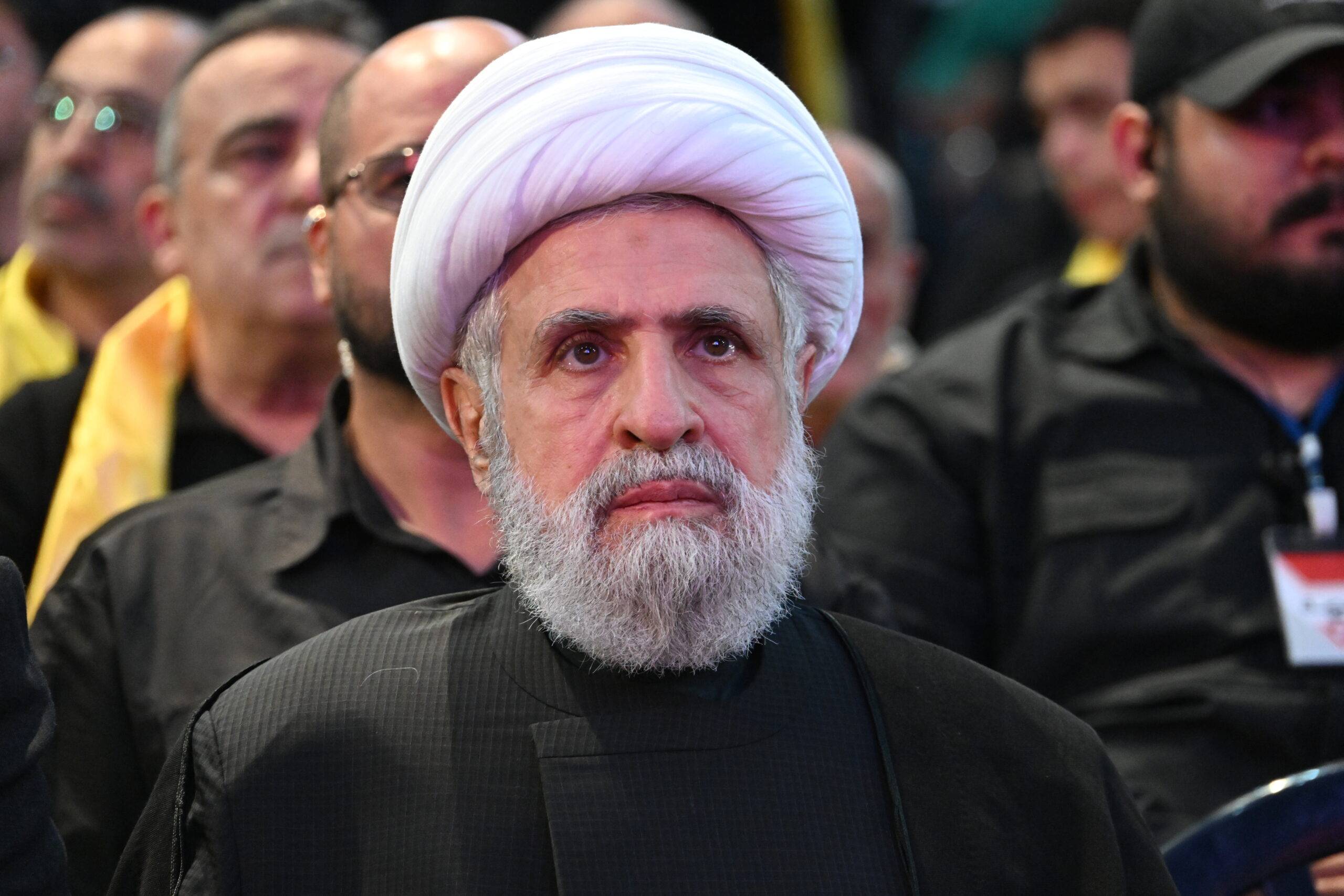Hezbollah’s New Leader Stands Firm Against Israeli Demands
Hezbollah’s newly appointed leader, Naim Qassem, has made it clear that the group will not comply with Israeli demands to disarm. During a significant Ashura event in Beirut, Qassem asserted that threats from Israel would not compel Hezbollah to surrender its weapons. His statement comes at a time when the United States envoy Thomas Barrack is set to visit Lebanon, with the expectation that he will urge Lebanese leaders to push for Hezbollah’s disarmament by the end of the year.
Qassem emphasized that before any discussions about disarming, Israel must first cease its “aggression” and fully adhere to the November ceasefire agreement. According to this agreement, Hezbollah was supposed to relocate its fighters north of the Litani River, while Israel was expected to withdraw from five key areas. However, Israel has continued to conduct airstrikes, claiming that Hezbollah still operates near the border. Lebanese officials have stated that they are actively dismantling Hezbollah’s southern military bases.
Supporters of Hezbollah gathered in Beirut’s southern suburbs for the Ashura procession, waving flags of Hezbollah, Palestinian, and Iranian symbols. Many also carried photos of former leader Hassan Nasrallah, who was killed in an Israeli airstrike last year. A 28-year-old resident from southern Lebanon, Hussein Jaber, remarked, “Those who think Hezbollah will turn in its arms are ignorant.”
Despite recent statements from Israeli officials expressing interest in normalizing relations with Lebanon, Qassem has categorically rejected any possibility of such moves. Lebanon remains officially at war with Israel, and no official response has been given from the country. Syria, which was also mentioned in the normalization discussions, has called the idea “premature” to consider.
In southern Lebanese towns like Nabatiyeh, Ashura commemorations were held under tense conditions, with fewer participants due to recent Israeli strikes. Residents reported that the attacks had damaged key areas, including markets, leading to widespread fear among the public. Across the region, Shiite communities observed the religious day with heightened security measures and lower attendance.
In Syria, hundreds of people gathered at the Sayyida Zeinab shrine in Damascus for the Ashura celebrations. However, unlike previous years, there were no international pilgrims present. Officials attributed the absence of foreign visitors to tightened security measures following the fall of Iran-backed Bashar al-Assad. A local shrine official confirmed, “This year, there have been no pilgrims from other countries.”







